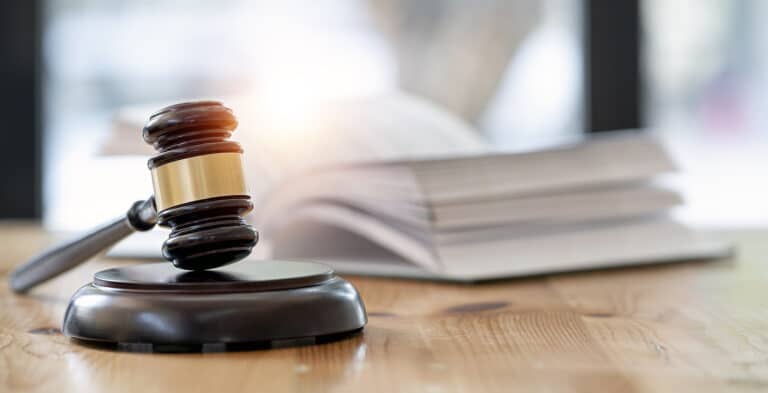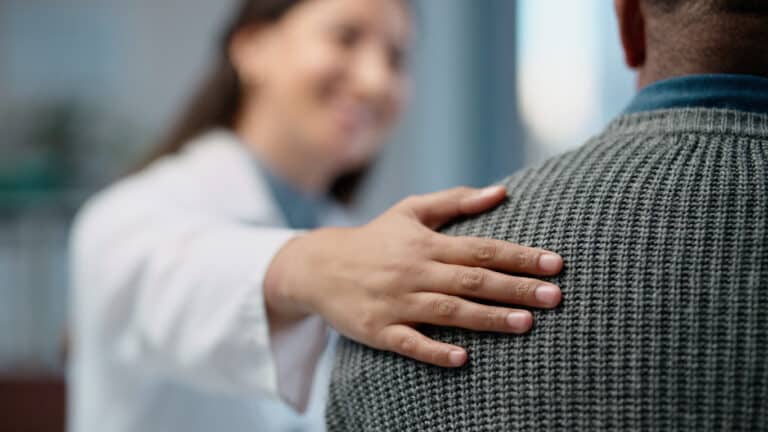When you use alcohol or drugs to cope with pain, anxiety and other symptoms, this form of self-medication can lead to substance use disorder, which is a form of addiction. One survey suggests that about 20% of Americans who have anxiety or mood disorders also struggle with SUDs, according to the Anxiety and Depression Association of America (ADAA).
Other triggers for self-medication, according to ADAA, include:
- Chronic pain
- Sleep disorders
- ADHD
- Bipolar disorder
- Personality disorders
What is Self-Medication?
When we in the addiction and recovery community talk about self-medication, we typically refer to people who struggle with depression, mood and anxiety disorders and use alcohol and drugs (whether over-the-counter, prescribed, or illicit) to treat the symptoms.
Self-medication, however, can take place without alcohol and drugs; some people develop behavioral addictions, such as gambling, food, and sex. Self-medication can lead to alcohol and drug dependence, which can lead to addiction.
You may have heard the term “comorbidity,” which describes the existence of substance use disorder (SUD) alongside another diagnosis such as depression, anxiety or another diagnosis. Scientific research tells us that the relationship between SUD and depression and anxiety is real. We cover that topic in a related article called “Alcohol and Depression — Are They Linked?” The short answer is yes, and they have a long and complicated relationship with each other.
Get help: Drug Rehab Orange County
Self-Medicating to Deal With Stress and Depression
Many people who self-medicate are not aware that’s what they’re doing. You may have said or heard someone say, “I drink to take the edge off” or refer to alcohol as “liquid courage.” These are a milder form of self-medication, using alcohol to cope with stress, anxiety and nerves.
In more serious forms of self-medication, people misuse, overuse and mix alcohol and drugs to deal with stress, anxiety, and pain, which can lead to dependence and substance use disorders. While those substances may offer temporary relief, they can also worsen those conditions. That’s where the cycle of self-medication and addiction begins.
Why do people self-medicate?
People who self-medicate do so for a number of reasons. Some turn to alcohol because it is legal, it’s readily available and doesn’t require a prescription. Some people lack funds to seek professional help. And some feel shame.
For people who suffer from depression and anxiety, it can be difficult to admit. Even though anxiety disorders affect about 40 million American adults (or 18% of the population, according to ADAA), there is still a negative stigma attached to them. The ADAA breaks down anxiety disorders as follows:
- Generalized anxiety disorder: 6.8 million American adults
- Panic disorder: 6 million
- Social anxiety disorder: 15 million
- Obsessive-compulsive disorder: 2.2 million
- Post-traumatic stress disorder: 7.7 million
- Major depressive disorder: 16.1 million
How to Tell if You Are Self-Medicating With Alcohol or Drugs
If you can answer yes to one or more of the statements below, you (or someone you know) may have a substance use disorder from self-medicating. Talk to an addiction specialist at Cornerstone of Southern California for a free, no-obligation and confidential addiction assessment.
- When I experience negative feelings such as anxiety, stress, depression, sadness, anger, or frustration, I drink because it makes me feel better.
- When I experience a negative event, such as a death of a loved one, job loss, a break-up, divorce or argument, I drink so I can forget about my feelings.
- When I drink to cope with negative situations and negative emotions, I often feel worse, and sometimes that makes me want to drink more.
- If I don’t have immediate access to alcohol, I get even more anxious.
- What used to take the edge off doesn’t any more; I have had to increase my intake in order to get the same effect.
- I take prescription medications, but sometimes I feel the need to chase them with alcohol or other drugs; sometimes I take more than my doctor has prescribed.
- I have taken prescription drugs that I purchased illegally, without a prescription.
Consequences of Self Medication
When you take medications that aren’t prescribed for you, you risk adverse side effects including overdose. Other risks, as described in an article on PubMed.gov (a website for scholarly articles curated by the National Institutes of Health) include:
- Incorrect self-diagnosis
- Delays in seeking proper medical advice
- Severe adverse side effects and reactions
- Dangerous drug interactions
- Incorrect manner of administration
- Dosage errors
- Masking of other diseases or conditions
- Risk of dependence and abuse
The consequences of self-medication can be dangerous and even fatal. Seek help from your family doctor or call Cornerstone of Southern California at (714) 547-5375.






